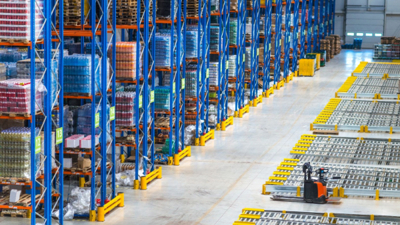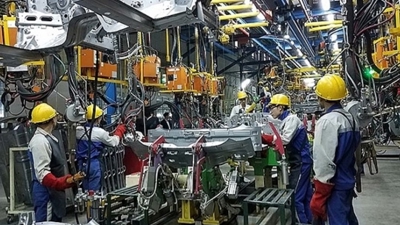Vietnam poised to capitalize on booming global battery market
Vietnam's battery supply chain is still nascent, ranking 20th out of 30 on the global lithium-ion battery supply chain ranking in 2024.

The rapid growth and high demand of the battery market present significant opportunities for countries participating in the global battery supply chain.
Vietnam is considered a nation with great potential, boasting abundant mineral resources such as nickel, cobalt, and rare earth elements.
Vietnam is currently setting goals for energy transition, targeting renewable energy to reach approximately 67.5-71.5% by 2050 and a 100% electric vehicle industry by 2050. This creates significant battery demand, not only for domestic consumption but also for export, contributing to the sustainable development of the economy.
However, Vietnam's battery supply chain is still nascent, ranking 20th out of 30 on the global lithium-ion battery supply chain ranking in 2024. This indicates that Vietnam's battery supply chain is in its initial stage and faces numerous challenges.
"The capacity to produce key battery materials in Vietnam remains limited, support policies need further refinement, and international competition is intensifying. Dependence on foreign sources of raw materials also underscores the urgent need to build a strong and flexible domestic supply chain," noted Mr. Le Tuan Anh, Director General of the Department of Industry and Service Economics.
According to Assoc. Prof., Dr. Dinh Cong Hoang from the Vietnam Academy of Social Sciences, Vietnam needs to implement sustainable development strategies to participate more deeply in the global electric vehicle battery supply chain. These strategies include diversifying raw material supply sources, investing in advanced battery production technologies, building infrastructure, promoting international cooperation, and ensuring environmental standards.
Mr. Hoang also emphasized the importance of supporting infrastructure. It is necessary to develop a network of charging stations covering urban areas and major transportation routes to ensure easy access and use for consumers. Additionally, it is crucial to comply with environmental regulations during the extraction, production, and recycling of batteries, develop technologies and processes for recycling used batteries, maximize the use of materials, and reduce waste.
According to a report from the International Energy Agency (IEA), global battery demand is projected to surge, increasing 4.5 times by 2030 and more than 7 times by 2035, driven by policies promoting clean energy.







